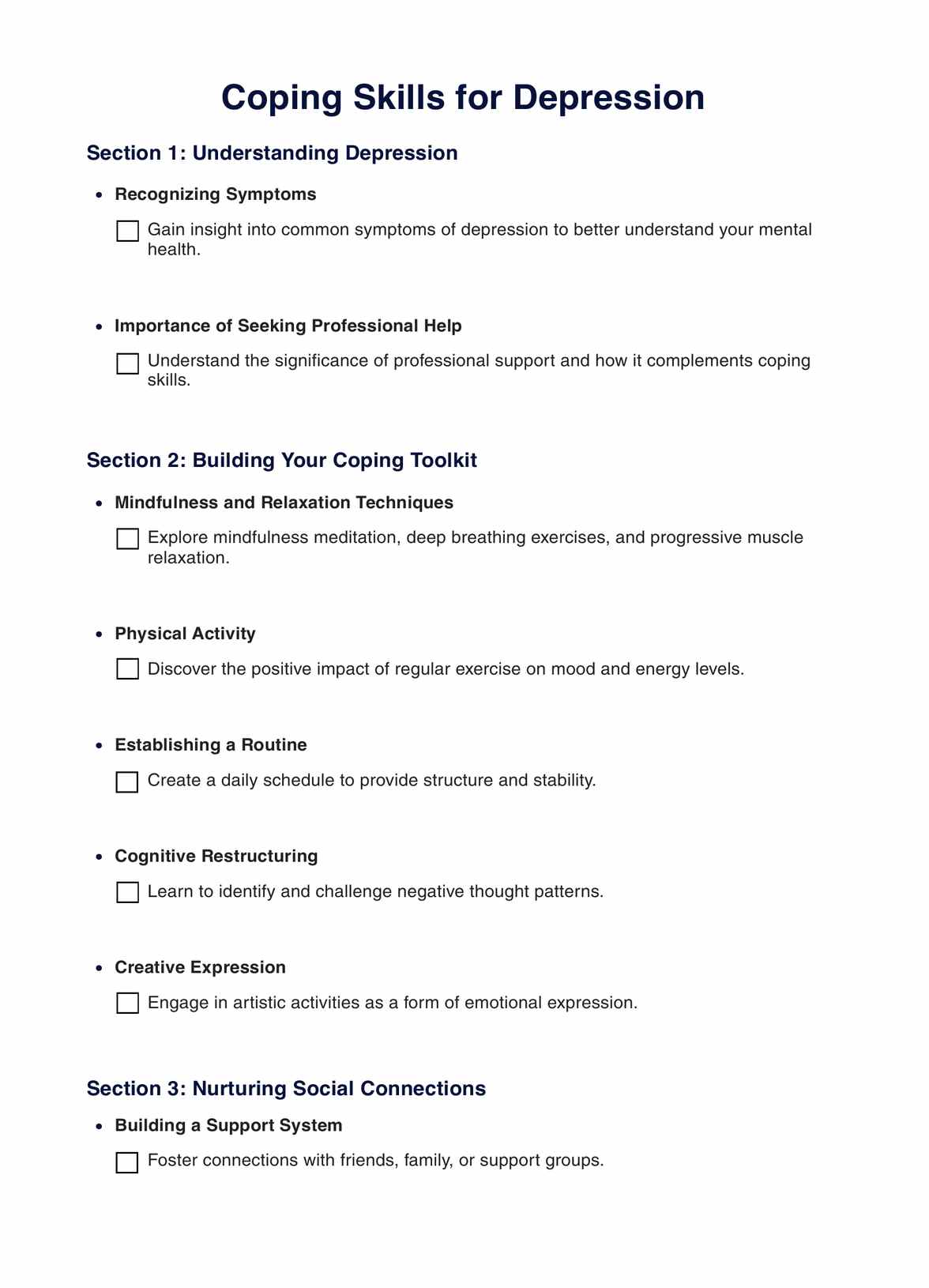Coping skills assist in managing stress, regulating emotions, and enhancing resilience in stressful situations, contributing to improved mental health and well-being.

Coping Skills For Depression PDF
Download our Coping Skills for Depression PDF for practical strategies and techniques designed to support mental well-being and empower your journey to recovery.
Use Template
Coping Skills For Depression PDF Template
Commonly asked questions
Coping with depression is crucial for fostering resilience, improving daily functioning, and promoting long-term mental health recovery.
Most people recover from depression through a combination of psychotherapy, medication, support from loved ones, and the development of coping strategies tailored to their individual needs.
EHR and practice management software
Get started for free
*No credit card required
Free
$0/usd
Unlimited clients
Telehealth
1GB of storage
Client portal text
Automated billing and online payments











